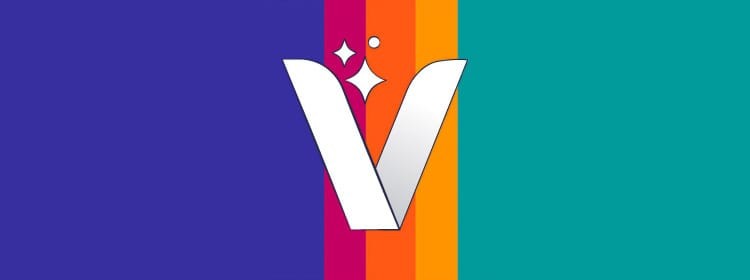Intrusive bossware and how it monitors remote workers
Bossware refers to software that employers use to measure just how productive their teams are. Such employee-monitoring solutions differ, but it is safe to assume that mostly anything is on the table. Companies can read and log emails, social media interactions, time spent using specific apps, and the clicks you make. Some tools can have keylogging capabilities, letting the employer know just how vigorously you type during the day. Ever since the pandemic hit, interest in bossware soared as many employers searched for effective ways to manage their home-working staff. Keeping an eye out for potential slackers is reasonable enough. However, specialists note that bossware could cross the line and result in hostile work environments.

What is bossware, and how does it work?
Bossware is the general term for programs employers use to monitor their staff. Since many companies lost direct contact with their employees during the pandemic, reclaiming similar access was a priority. Enter employee surveillance software, a tool that carefully monitors workers’ routines and productivity. According to ZDNet, the interest in bossware spiked by 50% in June 2020. For as low as $7 per employee a month, companies could get valuable insights into their teams without much effort.
These surveillance tools might come pre-installed into company-issued devices, or employees could receive instructions to set them up manually. Since bossware strongly resembles spyware, active antivirus programs can flag it or interfere with its functions. Thus, employers will typically modify settings for antivirus tools to reassure that bossware runs smoothly.
Once installed, bossware tools are capable of recording basically anything that happens on the device:
- Which tools workers use or websites they visit and for how long.
- Metadata (such as subject lines, timestamps, and recipients) from emails and messages.
- Live video footage of your screen.
- Frequency of keystrokes and mouse clicks made.
- Screenshots of your device that contain everything you have open at that particular time.
- Search queries.
- Photos taken via webcam or audio recordings via microphone (in rarer cases).
- Records of the exact keystrokes you make (what exactly you type).
- Your location (bossware for mobile devices frequently implements location tracking via GPS).
Bossware will not only collect information about employees’ activities. They also combine collected insights into charts or graphs. Thus, they visualize the collected data to pinpoint productivity peaks or times of slacking.
Do employees know about bossware?
In any case, people should be aware of monitoring and how exactly it works. Secretive use of invasive bossware is one of the reasons behind the hostility towards such tools. However, whether workers have full disclosure on how their employers monitor them depends on the purpose behind bossware.
- Visible monitoring. Employees might have some control over bossware. For instance, they might temporarily turn off monitoring or delete specific screenshots. Depending on the bossware used, workers might be able to access the insights gathered about their daily routines. Such access could be educational or eye-opening for them. For instance, they might notice their productivity peaks or times when they need to step up.
- Invisible monitoring. Not all bossware programs will be as open about their existence or the data they collect. Many tools can be made invisible, meaning that employees will not be aware of the digital watchdog. The installation process can also be secretive, as some bossware tools facilitate remote setups.
While visible monitoring seems like a more employee-friendly approach, specialists see red flags in both methods. In many cases, bossware grants too much power to the employer, which might not always be justified. When companies conduct covert monitoring, the problem skyrockets to new heights.
Reasons behind careful employee monitoring
Many bossware tools spin a relatively positive narrative. There are many accounts describing employee monitoring as a rewarding experience both for employers and workers. That said, bossware could help tackle issues related to poor time management or gradual decline in productivity. Additionally, such tools reinforce company policies and might serve as means to prevent abusive behavior. For example, some organizations might deal with sensitive information that requires utmost protection. In such cases, bossware might be necessary to warrant fairness and integrity.
However, the line between excessive power and justified use seems thin. Preferably, companies that do use bossware should follow several guidelines:
- Establishing boundaries to avoid the collection of personal data and passwords.
- Presenting problems and why employee monitoring tackles them. In other words, companies should provide evidence that bossware is actually necessary.
- Full disclosure about the tracking practices chosen should be a priority. Employees should know how the monitoring will work and what data it takes.
Thus, the main goal for employers is to balance the application of bossware. Such tools should implement monitoring in the least intrusive way possible. Although difficult to achieve, only then can workers be comfortable at accepting them. Additionally, companies should consider if bossware is the most effective way of increasing, say, productivity. After all, it delivers insights about employees’ actions, but might lack important context.
Moreover, there are ways to cheat the system. Let’s say bossware logs the frequency of clicks and keystrokes. Employees could regularly click their mouse or type something to simulate working. Thus, basing their productivity on the collected metrics can lead to inaccurate results. Of course, such insights can be valuable, but forgetting about the overall picture and other factors seems unwise.
Employers track the use of specific tools
Programs that you use for communicating with colleagues can also serve as insights into the work you do. For instance, companies using Slack’s Enterprise plan can retrieve searchable logs of messages and files exchanged. Google’s Workspace data is also obtainable by employers, including emails, files in Google Drive, and even Google Meet recordings.
Zoom can also serve workplace administrators information about meetings, participants, and meeting minutes for each employee. Project management tools such as Asana also might distinguish employees that are the most active and influential. Companies can also judge employees’ productivity according to commits made via tools like GitLab. Thus, even if your company does not use the traditional bossware (such as Teramid, Hubstaff, or TimeDoctor), they are still capable of monitoring you to an extent.
What can you do if your employer uses bossware?
The chances are that workers do not participate in the discussion regarding employee monitoring software. Companies are the ones making the final decisions, and they expect the workers to go with the flow. However, specialists highlight the necessity for an open dialogue between both parties. Typically, employees will feel uncomfortable about bossware, but have limited protections against it.
The current legal framework does not prevent employers from surveilling their teams during work hours. Of course, specific regulations might differ country-by-country. However, employees will likely have no way of challenging or rejecting intrusive surveillance strategies.
Thus, you have limited options when it comes to monitoring practices employers adopt. The best course of action is to do your work and assume that your company monitors your activities one way or the other. Try to be professional when communicating with your colleagues and avoid spreading gossip, regardless of how juicy it is. Also, avoid using your work computer for personal activities: one of the basic rules for using a company-issued device.
Lastly, while productivity is essential, specialists notice that the pandemic is not the time to focus solely on it. With mental well-being at an all-time low, employers should prioritize their employees’ emotional states. Constant monitoring and fears of appearing unproductive can interfere with creativity or lead to burnout. Additionally, the use of bossware can greatly diminish trust between employers and their staff members. While some level of monitoring is necessary, excessive or secretive tracking never seems to be the right answer.


![Do not fall for these NFT scams [Guide on NFT]](/static/056041ba6d4ba2907025ff96085cd4bc/1ea4a/what-is-nft-and-its-scams.jpg)
